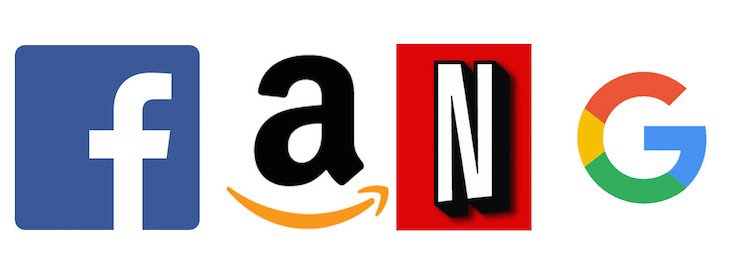
When most people think of investing, they tend to picture someone buying a security at one price and then selling it later on a higher price for a profit. This is only one aspect of investing however, and it's known as investing for capital gains. The other side of that coin is investing for income.
Income investing is a very straightforward strategy where the focus is on securities that pay dividends/interest. This can include dividend paying stocks, bonds, REITs, MLPs, and other types of securities. The income investor has one of two goals in mind, which is to either take the dividends and spend it or use the dividends to reinvest back into the same income-producing asset and tap into the power of compounding. Many of the biggest stocks in the world are used for income investing, which includes blue chips such as Proctor and Gamble, Johnson & Johnson, and Coca Cola just to name a few.

Capital gains investing is based on the old "buy low, sell high" principal. As far as stocks go, this type of investing is done primarily through what is known as growth stocks, which are companies that pay no dividend and instead use their profits to reinvest back into the growth of their own company instead of returning cash to shareholders in the form of dividends payments. Examples of such companies would be Google, Tesla, or Facebook among many.

Which One Is Better?
There isn't exactly a universal answer here, as investors will subjectively value certain goals more than others. Some investors will always view capital gains investing as their highest priority while others would rather stick with focusing on a stream of income.
My own view is that most people should NOT be investing for capital gains and should focus on income instead. The reason being is that it's much easier for the average investor to use income investments to create a compounding machine instead of accurately timing stock picks. The professional stock pickers on Wall St. can't even pick the right stocks consistently, so for the average person to try and to do is rather foolish.
I'll have much more to say about stock picking in the future so please considering following me if you found this article interesting. Thanks!
*This post is not intended to be considered financial advice. This is for informational purposes only.
Sources:
http://growthinformer.com/income-investing-strategies-explanation-working
http://www.frankcurzio.com/fang-stocks-fall-out-of-favor-but-dont-bottom-fish-here/
I see pros and cons to each depending on your age, starting capital, and goals. Younger investors, those with less capital, and those interested in more risk/growth would likely be better off focusing on capital gains, though I would be very interested in some examples and analysis of capital vs dividend investments.
Different estimates show that dividends contribute anywhere from 30-90% of total returns for stocks, so with the right companies even younger people can definitely snowball the dividends over a long period with great results. I feel that the core of the portfolio should be bigger, dividend paying companies while the growth stocks should have a smaller place with money that can afford to be lost. I'll try to write more on this topic in the future too, thanks for the comment!
Many people nowadays just invest via low cost index funds. Vanguard even offer ETFs focused on high dividend paying or value investing criteria. What's your opinion on these?
I'm a very big fan of Vanguard and Jack Bogle. IMO the top ETFs in the world are Vangaurd's VIG, VYM, and Schwab's SCHD. Dividend/dividend growth ETFs are a subject I've written about before on seekingalpha.com. Links to my pieces below if you're interested. I think any of these ETFs are absolutely ideal for maxing out the Roth IRA for Americans. Thanks for the comment.
https://seekingalpha.com/author/evin-rohrbaugh/articles#regular_articles
How do you see a balanced portfolio? How do you see crypto investment as part of your portfolio?
High risk? Small percentages?
I like basic diversification that attempts to turn 2 or 3 income producing assets into compounding machines over the long term. Assets I like are dividend-paying whole life insurance policies, blue chip dividend stocks, and potentially municipal bonds or muni bond funds depending on where you live. Also rental real estate paid for with OPM.
I do view bitcoin as much more speculative therefore it should be a small part of the portfolio with money that can afford to be lost.
I agree with financeguy. You don't want to be "cheap" but you don't want to be foolhardy. An old thing I've heard was "take your age and subtract it from 100 - that number should be help with aggressiveness" I don't know how true that is but its pretty alright especially if you're young. Now that I'm older. I try to think in terms of being a bank. I do have a lendingclub account which pulls in about 6-8% a year. I also put just a little away in silver bullion for inflation. And then I do a some divis and like financeguy, i use cryptos as speculation and almost consider it like casino money - i go in willing to lose it --- not trying to lose it, willing to lose it emotionally.
I believe you can benefit from both. I have both in my portfolio, capital gains stocks and a high yield dividend ETF. Im still quite a young investor, but what would ultimately be the benefit of only doing one or the other?
There isn't necessarily a benefit since they serve different purposes. You're right though, there is room for both in a portfolio, I just feel that the core should be dividend paying stocks while growth stocks should have a smaller place in the more speculative side.
Welcome to Steemit :)
I follow u, follow me back if u want lot of fun and amazing picture every day.
thanks for sharing
I'd go for companies that reinvest their earnings for more growth. However, I should always look into its history of management effectiveness, income growth, and competition.
I think there is a place for both in a portfolio, but growth companies requires making two good calls, buying at the right price AND selling at the right price whereas dividend paying companies only require steady reinvestment of the dividends and eventually taking the dividend income without worrying about where the share price is exactly.
The problem with dividends though, at least in our country, is that taxes are imposed so we get less than the total amount of dividend. And soon after the ex-div date, some would sell the stock. But yeah, buying at the right price and selling at the right price should be one skill to master.